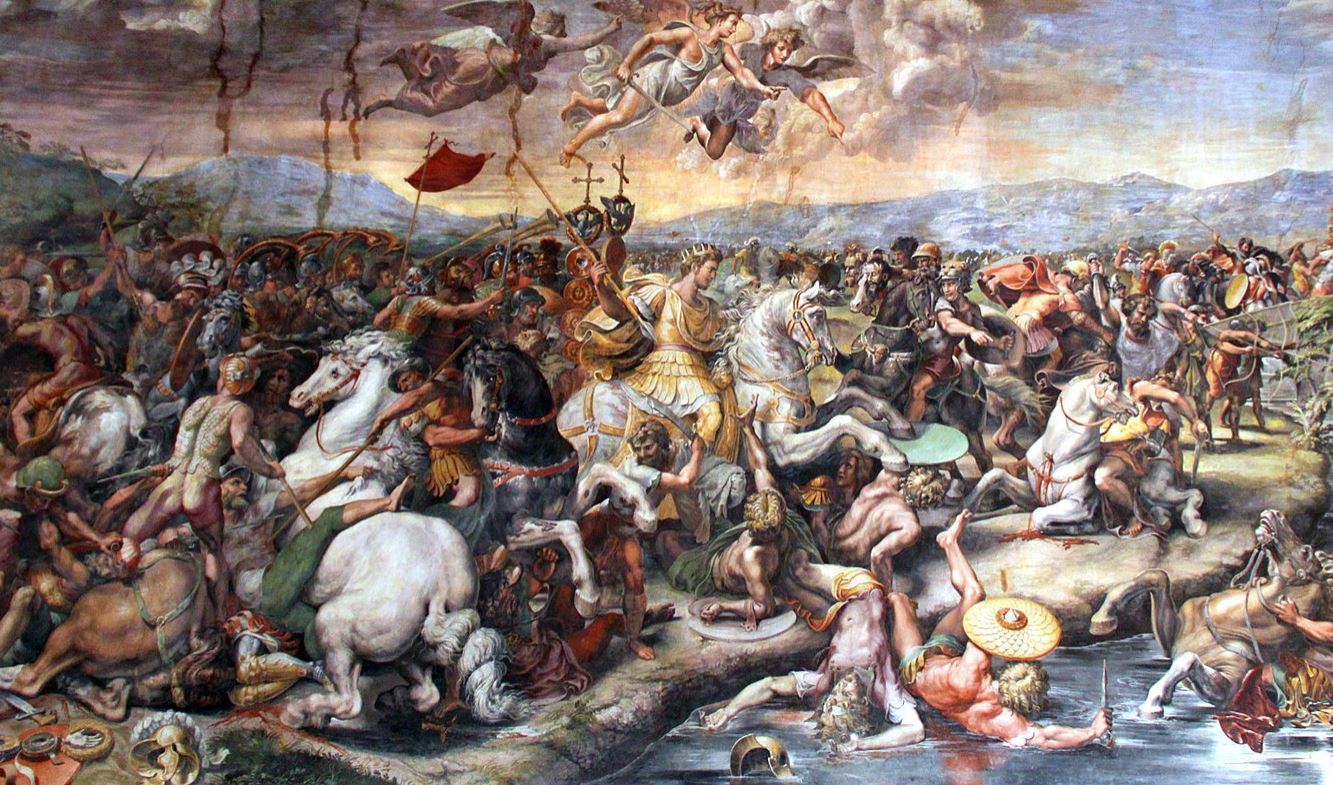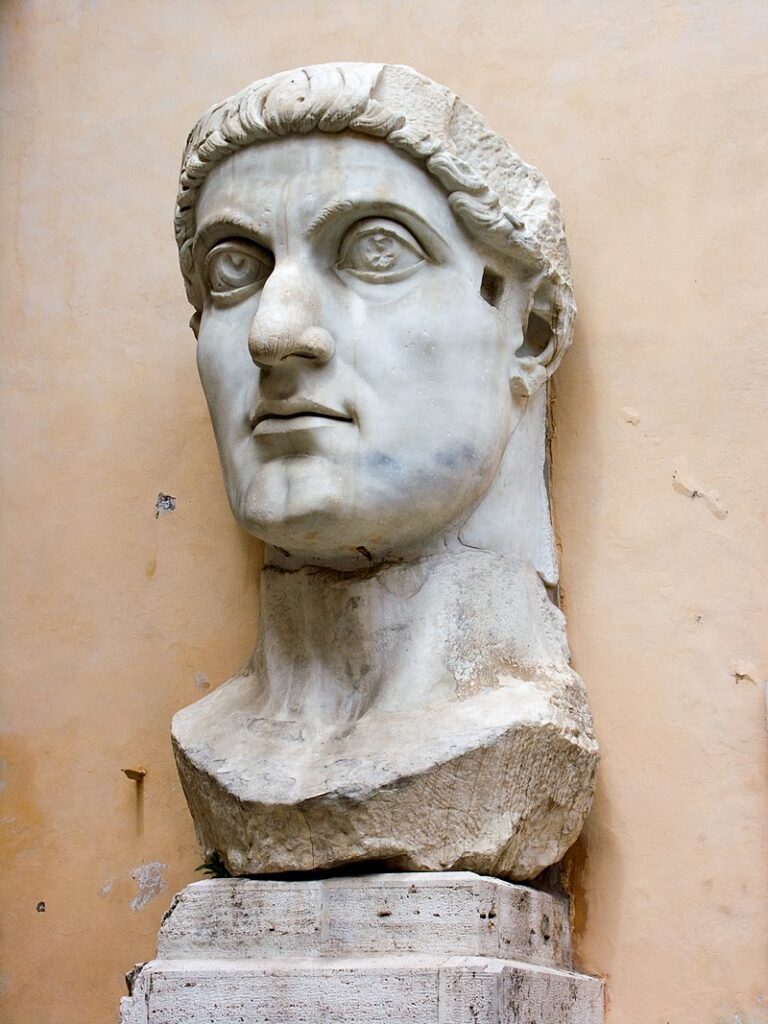by Ed Whelan, Contributing Writer, Classical Wisdom
The Battle of the Milvian Bridge (312 AD) truly changed the history of not only the Roman Empire, but also the world. This battle was one of many in the endless civil wars that scarred the Roman Empire, but its outcome was critical in the evolution of Rome. The victor of the battle went on to establish a new dynasty, lay the foundations for the later Byzantine Empire, and help establish Christianity as the official religion of Rome.
The Background to Milvian Bridge
The Third Century Crisis, which was a series of invasions, civil, wars, plagues and economic crises, nearly destroyed the Roman Empire. Emperor Diocletian established the Tetrarchy, which constituted junior Emperors who governed specific territories within the Empire, and who were answerable to two senior Emperors. This system was successful until the death of Diocletian, but it fell apart soon after his death. The Tetrarchy did not provide for hereditary succession, but soon Maxentius seized his father Maximian’s old territory in Italy and Africa and declared himself Emperor (306 AD).
Diocletian’s system broke down into rival entities that were de-facto independent states. Constantine had succeeded his father in the western provinces of the Empire, and soon extended his control over much of Rome’s European provinces. The usurper Maxentius successfully repelled two invasions of Italy, and was a successful ruler. He fell out with Constantine even though they were related by marriage. Constantine invaded Italy in the Spring of 312 and he quickly overran the north of Italy.
The Battle of the Milvian Bridge
In October 312, Constantine advanced on Rome, and he set up camp not far from the city. Maxentius had defeated two previous invasions of his territory by holding up in Rome. On this occasion, he decided to meet Constantine at the strategically important Milvian Bridge over the River Tiber. Maxentius’ army was larger and also contained the elite Imperial bodyguard, the Praetorian Guards. It appears that Maxentius advanced beyond the bridge, and his units had their back to the Tiber. He had ordered the construction of a pontoon bridge alongside the Milvian Bridge to allow his army to cross the river.
Constantine was a brilliant commander, and his troops were battle hardened veterans of countless battles with the barbarians, and he had superior cavalry. Constantine ordered them to charge the cavalry of Maxentius and routed them, and then he had his infantry advance on the enemy ranks. They gradually pushed back the forces of Maxentius, who ordered a retreat which soon became a route. In one account, the pontoon bridge collapsed, and many of Maxentius men drowned in their heavy armor. Many more were killed as they fled the battle.
The Praetorian Guards made a stand on the bank of the Tiber, and they fought until the last man. Maxentius died in the battle, and it is believed that he drowned in the River Tiber like so many others. The next day Constantine entered the city of Rome. If Maxentius, who was an able ruler, had not risked an open-battle and hunkered down for a siege, he may have easily defeated Constantine. Many believe that Maxentius was misled by oracles, but this may only be Christian propaganda.
The Battle and the Rise of Christianity
According to later Christian sources, on the eve of battle, Constantine saw a vision. The Vision of Constantine happened as he was speaking to his troops. It is claimed in the best-known version that a cross appeared near the sun with the words, “By this sign, you will conquer”. Many argue that Constantine then converted to Christianity, and that he won the Battle of the Milvian Bridge with the help of the Christian God. In reality, the sign that Constantine saw was not exclusively a Christian one, and it appears that he remained a pagan for many years, and only later became a Christian. Nevertheless, what is beyond dispute is that Constantine tolerated the Christians, and even patronized them. By the time of his death, the Christian Church was the de-facto state religion. It is beyond doubt that Constantine’s victory in the battle was crucial in the rise of Christianity, which previously had been marginalized and regularly persecuted.
Political and Military Implications
The victory of Constantine led to the re-unification under his leadership and the abolition of the Tetrarchy. The emperor later founded the city of Byzantium and made it his capital. This is often seen as crucial in the establishment of the Byzantine Empire, the successor state of Rome. After the battle, Constantine abolished the Praetorian Guard which had been a destabilising influence on the Empire since the First Century AD.
Conclusion
The Battle of the Milvian Bridge changed history. The victory was decisive in the conversion of the Roman Empire to Christianity. This is evident in the fact that Constantine is today a saint in the Orthodox Church. The aftermath of the battle led to dramatic military and political changes and in the long-run the emergence of the Byzantine Empire, which was to last in some form until 1453 AD.
References
Norwich, John, Julius (1994). Byzantium. London.












No comments yet. You should be kind and add one!
Our apologies, you must be logged in to post a comment.